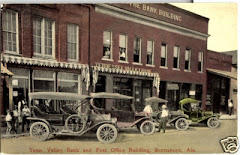(a)
The building department, in addition to other procedures provided, may obtain an inspection warrant under the conditions specified in this chapter. The warrant shall authorize the director or agents thereof to conduct a search or inspection of property, either with or without the consent of the person whose property is to be searched or inspected, under the conditions set out in this article.
(b)
Inspection warrants may be issued by the municipal court when the issuing judge is satisfied that all of the following conditions are met:
(1)
The person seeking the warrant must establish under oath or affirmation that the property to be inspected is to be inspected as a part of a legally authorized program of inspection which includes that property or that there is probable cause for believing that there is a condition, object, activity, or circumstance which legally justifies such an inspection of that property.
(2)
The issuing judge determines that the warrant is authorized by this article.
(c)
The inspection warrant shall be issued only if it meets all of the following requirements:
(1)
The warrant is attached to the affidavit required to be made in order to obtain the warrant.
(2)
The warrant describes, either directly or by reference to the affidavit, the property upon which the inspection is to occur and is sufficiently accurate that the executor of the warrant and the owner or possessor of the property can reasonably determine from it the property for which the warrant authorizes an inspection.
(3)
The warrant indicates the conditions, objects, activities, or circumstances which the inspection is intended to check or reveal.
(4)
The warrant refers, in general terms, to the Code provisions sought to be enforced.
Case law and Discussion
The Pennsylvania Law Weekly, May 18, 2017,
By: Zachary A. Sivertsen, Esq.
Municipalities throughout the [states] have enacted property maintenance, zoning and building codes to ensure construction is performed safely and in a technically sound manner, development occurs in an orderly fashion and properties are maintained and kept free of safety hazards. Key components of these regulatory schemes are inspections performed by municipal agents and employees, such as code enforcement officers and building inspectors, who monitor conformity with municipal regulations and issue citations and violation notices for noncompliance. Such “administrative inspections” however, may, in certain circumstances, violate the constitutional rights of residents to be free from unwarranted searches, guaranteed by both the U.S. and [state] constitutions. In fact, any search of private property by the government or someone acting on behalf of the government implicates the Fourth Amendment’s protections.
Most people are aware of these limitations, at least peripherally, in the context of police officers and other law enforcement officials investigating suspected criminal activity—namely the requirement that a search warrant be obtained prior to performing a nonconsensual search of property. Failure to obtain court permission for such a search invokes the “fruit of poisonous tree” doctrine, by which any evidence discovered as a result of the search is inadmissible against the occupant or property owner. This type of search warrant is known as a “general search warrant,” and must be issued by a judge.
Less well known though, is that inspections to enforce municipal regulations (including zoning ordinances, property maintenance code requirements, construction code requirements, rental or other licensing requirements, and other property-related municipal ordinances) are subject to the same constitutional restrictions. Thus when a municipal officer or agent wishes to perform an inspection, but does not have the owner or occupant’s permission to do so, they must obtain an “administrative search warrant.” Administrative search warrants are almost always issued by magisterial district judges; though case law indicates that such warrants could be issued by a neutral magistrate or officer, as in Commonwealth v. Tobin, 828 A.2d 415, 419 (Pa. Commw. Ct. 2003).
To obtain either type of search warrant, the requesting official must demonstrate “probable cause.” This means that the requesting official must have a reasonable basis to believe a crime has been committed (for general warrants) or that an inspection should be conducted (for administrative warrants). The standard for establishing probable cause for an administrative warrant is different and less stringent than that required for a general warrant. To obtain an administrative warrant, probable cause can be established by showing that “reasonable legislative or administrative standards for conducting an area inspection are satisfied with respect to a particular dwelling,” as in Camara v. Municipal Court of City and County of San Francisco, 387 U.S. 523, 538 (1967).
Relevant factors for evaluating probable cause include: the passage of time since a prior inspection, the condition of the premises, and the condition of the general area. Another basis is if there is a general administrative plan for the enforcement of an ordinance that is “derived from neutral sources,” as in Marshall v. Barlow’s, 436 U.S. 307, 321 (1978). For example, a property maintenance code with a general inspection schedule that clearly identifies districts of the municipality to be inspected, timelines for performing inspections of those areas, and a checklist of minimum standards to guide the inspections.
The underlying standard applied by the court when evaluating all searches, is reasonableness. The fundamental purpose of the constitutional protection from unwarranted searches is to protect individual privacy rights from government intrusion. Reasonableness is assessed by balancing the need of the municipal official or agent to perform the search, against the level of invasion into the property owner or occupant’s privacy rights that will result from the search.












